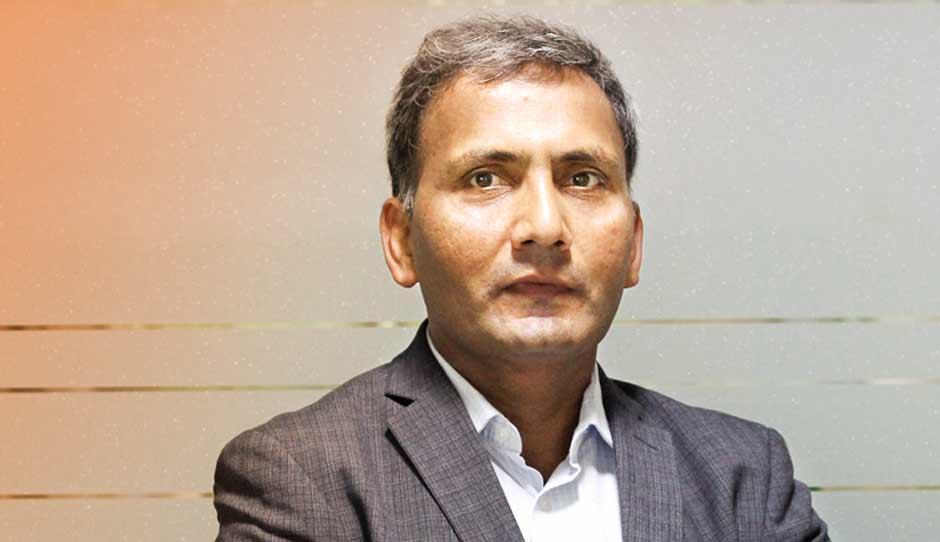An Impromptu Decision Led To A Telecom Company
- BY Aayushi Wadhwa
 In Technology
In Technology 10532
10532 0
0

Matrix is a leader in telecom and security solutions for modern businesses and enterprises. An innovative, technology-driven and customer-focused organization set up in 1991; the company is committed to keep pace with the revolutions in the telecom and security industries. MYB caught up with its CEO, Ganesh Jivani, who shared his account of the days leading up to the formation of Matrix and beyond.
I was born in a small, remote village called Rasnal in Saurashtra, Gujarat. It is in the town of Morbi, in the district of Jamnagar. I consider myself fortunate to have been born into a farmer’s family in a small, remote village. We were basically peasants doing all the farm work ourselves. This actually meant spending most of our days (and occasionally a few nights) on fields and farms with our extended family of parents, uncle, aunts and others.
My childhood experiences have shaped my personality and have left a lasting impression on not just me, but my peers in the family. While life in a remote, farming village has an element of charm quite the opposite of the humdrum synonymous with city life. If one were to cast aside the element of romanticism in what I say, livelihood options in a village are rather limited; especially in a country where agriculture is the mainstay of a majority of village folk. This brings with it an element of uncertainty, given that agriculture is heavily rain-dependent and farmers suffer acutely whenever there is a drought. This is a phenomenon that urban folk are quite oblivious to. Despite that, I find life in a village enchanting.
I completed my primary and secondary education in Rasnal. Thereafter, I went to Rajkot for my higher secondary studies. Following which, I did a Bachelor’s in Engineering from Maharaja Sayajirao University (MSU), Vadodara, in computer science.
The decision to opt for computer science was an impromptu one. Luckily, I did very well in my board examinations, such that multiple options were available to me, including medicine and engineering. Shortly afterwards, I, and a bunch of my friends, who were also interested in civil engineering, were called for an interview to Ahmedabad, following which a final decision could be made. At Ahmedabad, we stayed in the hostel room of a friend’s older brother who was studying civil engineering. On the eve of my interview, his roommate mentioned that a computer science course that was being introduced for the first time in Gujarat at MSU, which piqued my interest. Without giving it a second thought, even though my interview went well, I opted for computer science, a subject I had no knowledge about, in Vadodara, a place I had never visited.
As for career options, one can hardly expect adolescent village boys, myself included, to be knowledgeable. This is coupled with the fact that our parents and relatives too lack the requisite education to guide us in our choices. So the common practice was for friends to talk among themselves, and sound out possible career options. The hot topic of conversation among people in our village regarding jobs, was to either get into civil engineering in order to earn a monthly salary of Rs 1200 or take the civil service exams and apply for a government job.
After completing my engineering, my first job was at a small company called Power Electronics and Control as an embedded design engineer, where I worked for about 2.5 years. I joined another small company in Vadodara – Nomus Comm-Systems as a product design engineer. I worked there for about a year and a half.
However, once I started working, it became clear to me that sooner or later I would start my own business.
There are a few reasons as to why I wanted to start my own business. First, it my drive that pushed me towards starting my own business. Second, I was fascinated by creating my own products and marketing them around the world. I would fondly look at product brochures of other large companies in telecom, IT, automation and instrumentation and imagine what it would be like to design, manufacture and market those wonderful products the world over. Third, I also realized that in any job, there is only so much one can grow and I reached my saturation point.
I knew I wanted to build a product company but did not know which domain – telecom, IT, automation or instrumentation. Initially, we tried to design a few products in instrumentation, however, those did not work out.
We were a typical garage start up beginning from scratch. There have been no milestones, but we have had a few accomplishments along the way, which included taking up our own factory in 1995, building our own head office in 2001, starting international business in 2002, diversifying to security business in 2008 and setting up our R&D centre in 2011. We are a privately held company.
Being an engineer and having worked on product development, I was too technically oriented in the beginning and that was how I used to view business, thereby ignoring other important functions such as marketing and sales. I had to make a conscious effort to respect the varied functions involved in running a company, including marketing and sales, finance and HR.
Three principles guide me in our dealings with people – fairness, transparency and sincerity. For me, fairness is to think from the other person’s angle and respect his or her views. Second, we are transparent to a fault. We have no hesitation in sharing information with our employee s, partners and customers. At times, this works against us. But, I take this as a small price to pay for the big benefit transparency brings to any individual or organization. Third, we take our obligations and promises seriously and give our best to fulfil them.
I don’t think our principles or philosophy have changed. However, as the organization grows (we are now 500+), it is a continuous challenge to ensure that everyone practices the principles our company ascribes to.
System integrators and distributors made the first big impact on our confidence and business. These were not necessarily big-ticket contracts or large orders, but relationships based on trust and commitment. When you are a small comapny with limited experience and resources, what you need is people who believe in you and are ready to work with you. I can name many partners who contributed to our success and we are fortunate to be working with them even today.
During my early days in business, I used to rely more on my instincts and take quick decisions only to repent later. With time, I too came to learn, adapt and change. Now, I temper my instincts.
While I do not think we have reached the pinnacle of success, I do feel elated whenever we launch a new product, acquire a new partner in a foreign country or close a large order. I am proud of the products we have created and the fact that we have a customer base in 30+ countries (including technologically advanced ones) who purchase and use our products. What more an engineer-turned-entrepreneur want in life? Clichéd as it may sound, but actions do speak louder than words.
The reason for starting this company, in addition to making money, has been the ambition to prove that Indian engineers can create world-class products and sell anywhere in the world.





























Add new comment